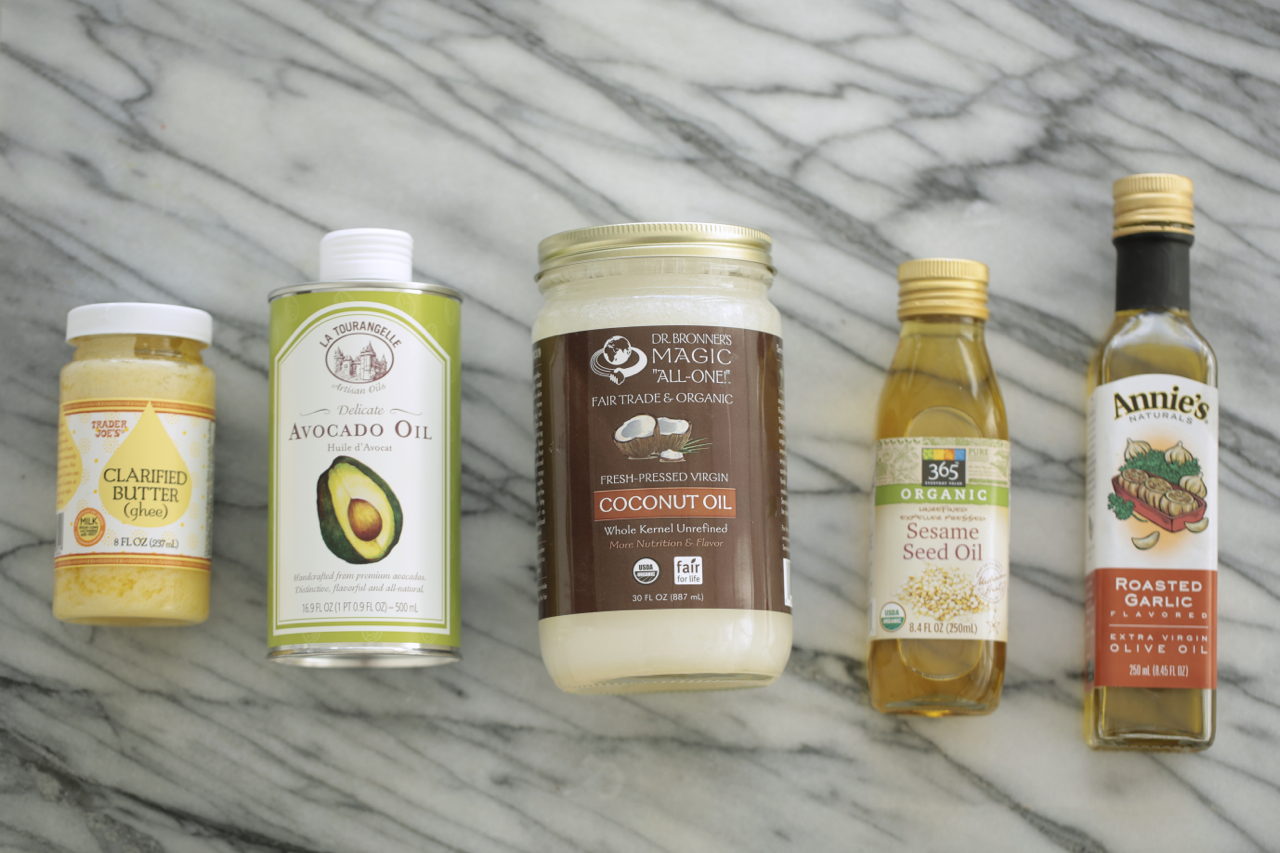Oils 101: The difference and benefits of the oils in the market


Up until recent years, fat used to be considered our number one enemy. In the 80s and 90s government health institutions set guidelines that made most people avoid fat like fire, hoping for a better health, reduced risk of heart attack and a hot body. This led to major decline in sales of oil, butter and dairy in general and the fat-free substitute market boomed. Low fat cooking sprays, spreads and milk grew ever more popular. But did it work? As it turns out the advice to avoid fat and oils was misinformed and potentially did more harm than good. Last year an American researcher suggested a campaign to tell people that avoiding saturated fat while not watching carbohydrate and sugar intake is a health threatening misconception.
So, Are Fats Good For You?
Firstly, there are a few types of fat.
Saturated fat comes mainly from animal sources, such as red meat, poultry and full-fat dairy. High intake will increase your LDL cholesterol levels (deemed ‘bad’ cholesterol) and can increase the risk of heart disease.
Trans fat occurs naturally in some foods in low quantities however it is mostly present in oils that undergo processing – partial hydrogenation. This can also increase LDL and decrease the ‘good’ cholesterol HDL.
The healthy types of fat are all the unsaturated fats such as:
-Monounsaturated fatty acids, found for example in certain oils
-Polyunsaturated fatty acid are found mostly in plant-based foods and oils
-Omega-3 fatty acids found in some types of fatty fish
These all help reduce LDL cholesterol and decrease the risk of heart disease and diabetes.
Best Oil Sources
Even though a healthy diet should include variety, you should focus on getting enough healthy fats and reducing the bad ones to minimum. But remember – even ‘good’ oils can become harmful when heated. So the oils used for cooking should not be the same ones you would eat cold as salad dressing, for example.
During cooking at a high heat, you want to use oils that are stable and don’t oxidize easily. When oils react with oxygen they form free radicals and harmful compounds that you should never consume!
Saturated fats have only single bonds in the fatty acid molecules, monounsaturated fats have one double bond and polyunsaturated fats have two or more. The double bonds that are chemically reactive are sensitive to heat.
Which fats should I use for cooking and which cold?
Saturated fats and monounsaturated fats are most resistant to high temperatures. Polyunsaturated fats shouldn’t be used for cooking.
-Avocado oil – made from the flesh of the fruit rather than the seed. It’s great for cooking as well as cold. It contains lutein, beneficial for eye health
-Coconut oil – solid in room temperature- it’s excellent for withstanding high temperature. Ideal for cooking. Due to high level of medium chained triglycerides it is less likely to be stored as fat than other oils.
-Flaxseed oil – excellent as a salad dressing due to its delicious nutty taste. It reduces ‘bad’ cholesterol and inflammation.
-Fish oil – best taken as a supplement in capsules – great source of Omega 3



